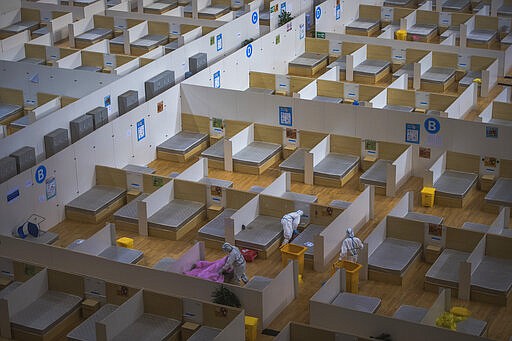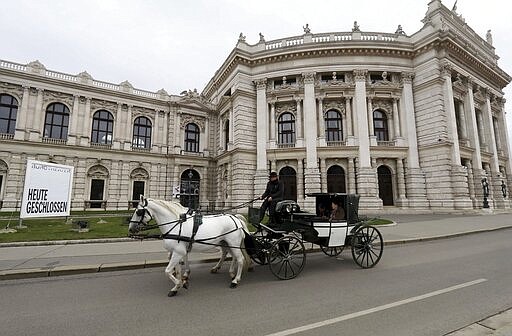What's Happening: Pandemic declared, virus survival studied
New clusters of the novel coronavirus are expanding in the United States and Europe as Italy replaces China as the current epicenter of a worldwide outbreak.
For most people, the virus causes only mild or moderate symptoms, such as fever and cough. For some, especially older adults and people with existing health problems, it can cause more severe illness, including pneumonia.
These are some of the latest developments on Wednesday:
WORLD HEALTH ORGANIZATION DECLARES PANDEMIC
The World Health Organization declared the outbreak a pandemic but said it’s not too late for countries to act. By using the word it had previously shied away from, the U.N. health agency appeared to want to shock lethargic countries into pulling out all the stops as cases mount globally. “We have called every day for countries to take urgent and aggressive action. We have rung the alarm bell loud and clear,” said WHO chief Tedros Adhanom Ghebreyesus.
VIRUS SURVIVAL TIME
A study by U.S. scientists found the new coronavirus could be detected in the air up to three hours after being sprayed. It could live up to 24 hours on cardboard and up to three days on plastic and stainless steel. To determine their findings published Wednesday, researchers used a nebulizer device to put samples of the new virus into the air, simulating what might happen if an infected person coughed or made the virus airborne some other way.
BEIJING QUARANTINES FOREIGN TRAVELERS
Beijing's city government ordered all passengers arriving in the city from overseas, regardless of their points of departure, to undergo a 14-day quarantine. The move was part of stepped-up measures to prevent the new virus first detected in China from re-entering the country following its spread across the world. The outbreak in China has been easing, with just 24 new confirmed cases reported Wednesday. Five of those arrived from Italy and one from the United States.
SCHOOL CLOSURES EXPANDED, DEBATED
As schools around the world close or move classes online, experts are debating whether such measures help protect students or surrounding communities. The downsides include the hypothetical risk of children infecting grandparents or other caretakers and the potential harm to children’s education and nutritional needs. Still, Poland and Ukraine have joined the countries deciding to close schools. The two eastern European nations have small numbers of confirmed cases. More U.S. colleges and universities are also extending spring breaks and moving classes online, as cases in the country pushed past 1,000.
NEW CLUSTER IN SOUTH KOREA
While cases have been waning in South Korea, a new cluster in Seoul raised alarms. The cluster was connected to a call center in one of the busiest areas of the capital. So far, 93 people have tested positive among the center’s employees and their families, but the number could grow as hundreds more undergo testing. South Korea’s caseload of more than 7,700 infections is the fourth highest in the world after China, Italy and Iran.
GRETA THUNBERG SAYS KEEP PROTESTING, BUT DIGITALLY
Climate activist Greta Thunberg is urging people to protest online instead of in person because of the virus outbreak. The Swedish teenager told followers on Twitter to “keep your numbers low but your spirits high." She said the challenge was to find new ways to create public awareness and advocate for change that don’t involve big crowds. Ahead of upcoming climate change rallies, Thunberg said people could post photos of themselves with their signs and listed some hashtags they could use.
___
The Associated Press receives support for health and science coverage from the Howard Hughes Medical Institute’s Department of Science Education. The AP is solely responsible for all content.
___
Follow AP coverage of the virus outbreak at https://apnews.com/VirusOutbreak and https://apnews.com/UnderstandingtheOutbreak






















